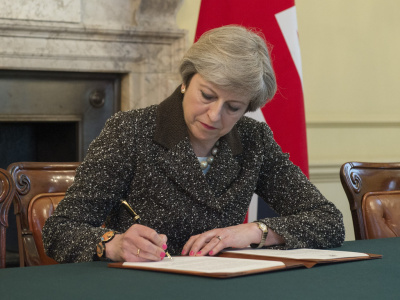
Political Dialogue on Human Rights under Article 8 of the Cotonou Agreement
Key Highlights
There are no magic bullets for improving political dialogue on Human Rights issues. Inevitably, such a dialogue is likely to evoke tensions and polarisation. Either because it confronts power structures reluctant to change (authoritarian regimes) or because different views exist on the values the EU seeks to promote (LGBTI issues are a case in point).
While the EU should continue to be a ‘norm entrepreneur’, fostering (universal) Human Rights values in its external action, it needs to do this with sensitivity to local contexts, in a gradual manner and in alliance with domestic drivers of change. Otherwise its efforts may yield limited results and even be counterproductive.
Background
Article 8 of the Cotonou Partnership Agreements outlines the specific modalities for a regular, comprehensive, balanced and deep political dialogue. Contrary to past practices, the political dialogue under Cotonou covers a broad range of topics, most notably the respect for human rights, democratic principles, the rule of law and good governance. Article 8 further stipulates that representatives of Civil Society Organisations shall be associated to this political dialogue between both parties.
Aim of ECDPM Study
The aim of this study is to assess the comprehensiveness and effectiveness of the EU’s political dialogue on Human Rights under Article 8 of the Cotonou Partnership Agreement with the Group of African, Caribbean and Pacific countries (ACP). Following a set of guiding questions, the study looks into the inclusiveness, comprehensiveness, effectiveness, alignment and impact of EU political dialogue in the area of HR, both within and beyond the Cotonou framework.
Key Findings of ECDPM
There are limits to purely ‘normative approaches’ to promoting HR. In order to be effective, the EU needs to make a down-to-earth assessment of the leverage it can mobilise in a given country through the various foreign policy, trade and cooperation instruments at its disposal.
Transparency on the EU’s interests. The EU is clear on its intention to promote HR values in its external action, yet tends to be conspicuously silent on its own (les altruistic) interests in partner countries. This asymmetry seems no longer tenable, also in comparison to other international actors. In order to be a credible actor on HR issues, the EU should better reconcile its values and interests.
- The EU needs to develop a more strategic and structured approach to political dialogue and enhance the legitimacy of the human rights political dialogue. The EU needs to ensure a result-oriented monitoring of HR dialogue and fully exploit the potential of development programmes and financial instruments.
Read the study

